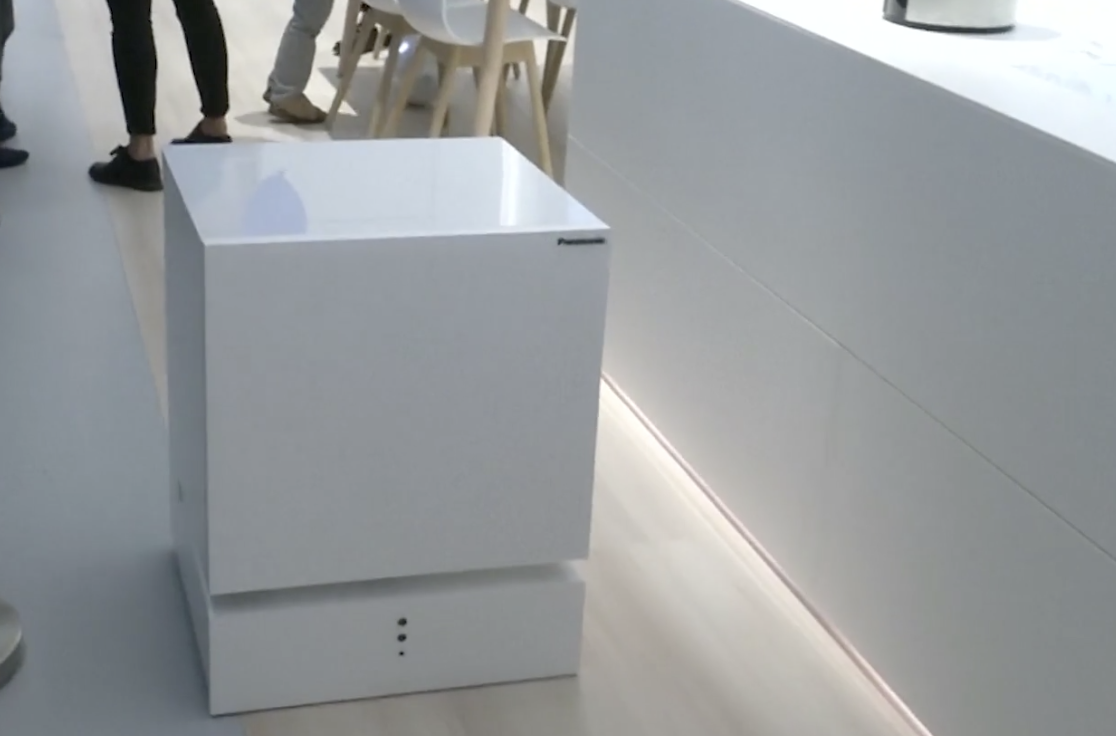No need to dwell on the woeful immobility of your refrigerator any longer: electronics giant Panasonic could solve this age-old problem with Ku, a voice-activated, self-driving fridge that rolls over to you when beckoned.
Ku was announced at the IFA consumer electronics showcase in Berlin last month, Fast Company reports. While it’s just a prototype, the rolling snack cube could be available in 5 or 6 years.
A Business Insider video sets up Ku’s routine as such. Ku would have its own little cubby in your kitchen. You could say “Hi Ku, come to the dining table,” and Ku would leave its nesting hole and amble over to you, using depth sensors to map your home and help it avoid running into furniture and children alike. It works sort of like Siri and Roomba combined, or as Daniel Cooper writes for Engadget, the fridge is “little more than a coolbox glued on top of a robot vacuum cleaner with a voice interface.”
While yes, that’s pretty much exactly what Ku looks like, the moving fridge could have actual purpose besides helping lazy people move even less. It could help people with mobility concerns like the elderly or folks who are differently abled get food more easily. If Ku could be put to good use, then great. But Ku would also be subject to the rather hilarious, but often serious, consequences of having a “smart” home.
A while back I wrote about how Roomba, the robotic vacuum, might start selling users’ home data to third-party buyers, meaning it could use the presence or absence of things in your home—say your lack of coffee table—to help advertisers better sell to you. Not to detract from the whimsy of Ku, but it’s possible that the fridge could help advertisers know what we eat and when. And of course, anything that can connect to the internet can be hacked. It’s not hard to imagine headlines like “Your Self-Driving Fridge is Actually Spying On You.”
Again, Ku isn’t ready to roll around your home quite yet. But the larger trend of automation in the home suggests a future where we’re all plugged in in ways that could just make it easier to do nothing. For all of the positive things a connected world can bring, it also amplifies the lure of laziness—and the all-too-real potential of getting hacked. If it can happen to Equifax, it can happen to your ice maker.



